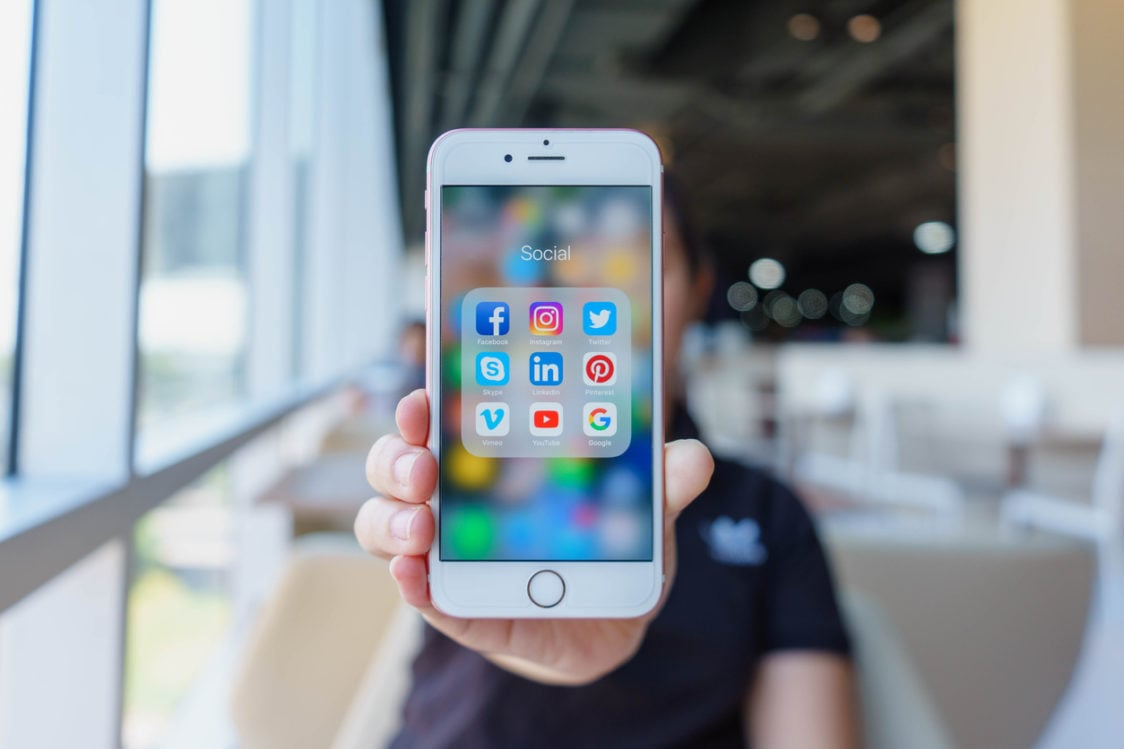Table of Contents
Social networks have become a big part of our daily lives. Maybe even you spend a few hours a day scrolling. Alternatively, you might know someone whose finger is scrolling through the news in the online space even when they’re asleep. Digital media can be a good servant, but not when it’s used excessively. If someone starts using it to kill every single spare moment and the whole thing gradually starts interfering with their duties, it is probably not a good sign.
Not to mention that on social networks you can perceive reality with a distorted impression. Everyone portraits themselves in the best light possible, so when you compare it to your real life, it might seem that you’re doing something wrong. So in today’s article, we’ll take a closer look at what social networks can do to your psyche and how mindless scrolling affects our lives.
Popularity of social networks
The popularity of online platforms is still growing, as evidenced by the Global WebIndex survey from January 2022. It says that social networks are used by up to 58.4% of the world’s population, which represents an incredible 4.62 billion people. On average, people actively use them for about 2 hours and 27 minutes every day, and this number is growing each year. Interestingly, the average person reaches for the phone about 52 times a day. [1] [15]

Interesting facts about social networks
The survey also found the following:
- The three most popular social networks in 2021 include WhatsApp, Instagram and Facebook
- In 2021, people spent almost seven hours a day on the internet
- The biggest time-killing network for Android users is YouTube, where people spent an average of 24 hours a month in 2021, followed by Facebook (19.6 hours / month) and WhatsApp (18.6 hours / month).
- people spend almost 5 hours a day with a smartphone in their hand
These statistics often did not include data from China, and the survey did not take YouTube into account when considering the popularity. According to the Statista website, this video portal was the second most popular social network in 2021. On the other hand, the most downloaded was TikTok, which continues to grow every single day. These statistics also show that scrolling on social networks has become a common part of our lives. [2] [16]
Where did the scrolling come from?
Have you ever thought about where the endless scrolling, also known as infinite scrolling or doomscrolling, came from? It is a technique that continuously shows more and more new content on the screen of a computer, tablet or smartphone, while the user slides his finger from top to bottom. It is used by Facebook, Instagram, Twitter, and TikTok.

This scrolling can be nicely compared to the universe – you are exploring deeper and deeper parts of it, but have never discovered its boundaries. The endless scrolling technique is invented by developer Aza Raskin, who first showed it to the world in 2006. Its goal was to simplify the user experience – just move your thumb up and down without interrupting your content consumption by clicking on other sites. Although Raskin created this with a noble intent, over time, many people became addicted to scrolling. The creator of the technology even stated on his own Twitter that endless scrolling is causing a waste of 200,000 human lives a day. [3–4]
Scrolling as a technique that penetrates the brain
Have you ever wondered how a piece of programming code can affect the lives of millions of people? Well, it’s the brain, which loves social media notifications and the search for information. Whenever a notification about a new message appears on your display, or you find an interesting post, your brain releases a small amount of dopamine. It is also known as the happy hormone, because the brain produces it during activities that evoke joy. An example is eating a tasty lunch, playing video games, exercising or going to the cinema.

These are the activities you are looking for in a targeted way and have a clear beginning and end. But the problem is that the same approach is applied to social media scrolling, where the brain tries to look for happiness, a chemical reaction that releases dopamine. When there’s nothing to satisfy the brain, you keep going. As a result, you can become “addicted” and reach for your phone all the time. The longer you don’t have the phone in your hand, the more cortisol is released in your body. The result of its elevated level is stress and restlessness, which you want to get rid of with some reward. In this case, it is the phone that will help you to achieve satisfaction thanks to dopamine. And that’s how you can get stuck in an endless circle of these two hormones. [15]
It’s a similar to playing slot machines for someone who has already experienced the sweet feeling of victory that released dopamine in their body. Many gamblers have already experienced a similar feeling during years of playing. This is what drives them back for the next spin. If they lose, they hope that with each new spin it will change. As this gradually becomes a hunt for dopamine, which grows into addiction. [5–6]

Why is scrolling bad for you?
You might say that scrolling on social media is pretty innocent compared to the slot machine example. After all, your partner does not threaten you with divorce because of scrolling, It’s not like once again you turned your joint savings into a missed opportunity in a casino. Yes, endless scrolling is free, but there are a few things why this seemingly innocent activity is hurtful.
The habit of endless scrolling can cause us unpleasant feelings, for example, in moments when you do not have our smartphone in your hands. When you try to put it away, the urge to reach for it can occur several times during the first hour. On average, people reach for their phone up to 52 times a day. After 12 hours without a phone, you may feel anxious as the stress hormone cortisol begins to be excessively release in your body.
When you try to stay without a smartphone for 24 hours, a syndrome called FOMO (Fear Of Missing Out) may occur. It was first described in 2004. It is a phenomenon when someone is afraid that he will miss something important, not only on social networks. Therefore, one suffers from a frequent urge to see what is new. Concerns that something will be missed can lead to stress and other problems. [17–18]
Below are some other reasons why endless scrolling is not great for you.
1. Sensory overload
Endless scrolling comes with an endless supply of information and visual stimuli. As you keep scrolling, your brain doesn’t have enough time to process the enormous amount of information. This then leads to sensory overload, as a result of which you may feel exhausted, stressed or tired. [7]
2. Negative impact on mental and physical health
Social networks are a great source of information. However, often not only positive but also negative ones. These can trigger dark thoughts, which in turn can negatively affect our mental health. Consumption of negative news is associated with fear, stress, anxiety and sadness. A study from 2021 also looked at the endless scrolling of negative news. It found that when faced with the choice of closing the window or continuing, the brain activates parts that encourage you to continue learning. While the resulting information can make you feel bad, the brain simply prioritizes knowledge over putting the phone away.
You might be interested in these products:
And that’s why you expose yourself to news that can trigger the mentioned unpleasant feelings in you. Social networks also often create the illusion that people around you live perfect lives. This is because everyone tries to look happy, although in many cases the opposite is true. This in turn leads to constant comparison with others. The result can be great dissatisfaction with one’s own life and an avalanche of dreary thoughts.
However, the issues are not always on a mental level. Endless scrolling on social networks can also affect your physical health. People often scroll at the expense of some physical activity. Lack of regular exercise then affects overall health. It may increase the risk of obesity, heart disease, high blood pressure, type 2 diabetes and high blood cholesterol. Sitting down with a phone in your hand can also lead to back pain, neck issues, muscle stiffness and hurts your eyesight. [8–11]
3. Loss of productivity
When scrolling social media, time runs somehow faster. You pick up your phone to see what’s new, and half an hour later you are wondering what happened. If his happens a few times during the day, it can inconspicuously rob you of 2 hours of your time. And this precious time may be missing from your schedule when you try to squeeze in some exercise, cleaning or running errands.

Due to the endless scrolling, you can very easily forget what you planned, lose track of time and neglect other activities. On top of regular duties, this might also include your sleep. Many people scroll on Facebook or Instagram late into the night and deprive themselves of hours of important sleep. Lack of sleep then triggers other inconveniences, which you can learn about in our article What Happens to Your Body When You Don’t Get Enough Sleep? [7]
Tips on how to stop the endless scrolling
If you spend many hours a day on social networks, reducing this time overnight will not be easy. However, you can try to get inspired by some tips to help you stop the endless scrolling.
1. Analyze your own behaviour from when you wake up
Try to notice when and how much time you spend with the phone in your hand. Then you will be able to limit this behaviour. There’s nothing wrong with reading the news and staying informed, but if you set the boundaries, you can gradually spend less time infinite scrolling.
For example, if you realize that your cell phone is the first thing you reach for in the morning when you wake up to quickly connect to Wi-Fi and find out what’s new, you can start with this bad habit. Before going to bed, simply place your phone somewhere on the other side of the bedroom so that you can’t reach it from the bed. Instead of extending your time in bed being on your phone, you can get up a little earlier and spend time preparing breakfast or morning coffee. However, if an imaginary STOP sign has appeared in your head, because you are used to using your phone as an alarm clock, and therefore you must have it with you, it’s not a problem. If you put it further away from you, you will have to get out of the bed to turn it off. But if this solution doesn’t suit you, try investing in a classic alarm clock, which can also serve as a decoration in your bedroom. [12]
2. Don’t spend time on your phone before sleep
You can apply the same procedure in the evening, when again many people reach for their phone. It often starts innocently with the target of 15 minutes, but then you carry on until you realize that you are going to sleep at least an hour later. Technology can affect not only length of sleep, but also its quality.

The blue light from the phone display keeps your brain alert because it disrupts the natural production of melatonin. As a result, it is very detrimental to healthy sleep. Try to follow the rule that the phone does not belong in bed. Put it away from your bed and don’t use it at least an hour before sleep. For example, read a good book instead. This will result in longer and better sleep. [12] [14]
If you are interested in more information about sleep quality, be sure to read our article How to Improve Sleep and How It Affects Health and Muscle Growth.
3. Set a specific time to check your phone
Reaching for the phone several times a day seems to be a bad habit for many. If you are reading this article, you are probably no exception. To stop with this time-wasting, try to reserve a specific amount of time for checking your phone. For example, it can be a few minutes from a lunch break or pick up your phone only after you take care of all urgent responsibilities.
If you want to take it even further, you can try using different apps to monitor your digital life. You can set the time that you are willing to devote to social networks, and when you reach that time, the app will notify you. There are even some that will automatically turn off your social media and make them unavailable until the next day. You can also reduce the time on your phone by reducing the amount of information you seek. You don’t have to follow dozens of sites that burden you with a constant supply of news, most of which are not even worth your attention. Try to reduce the supply to only 2-3 quality sources, which you can check twice a day. A good help might also be personalizing or turning off notifications. If you don’t get notified that someone posted something, you won’t have the urge to check it out. [13]
4. Spend time on creative activities, family, friends or the real world
Set aside an hour during the day to do activities that positively stimulate your brain instead of infinite scrolling. A good examples are puzzles or LEGO, which can release dopamine in your brain every day as you are getting closer to your goal. Painting, jewellery making or any activity that will allow you to reach a certain level of satisfaction can also work. You can also try spending more time in the real world instead of the digital one.

Instead, try to focus more on your family, friends and other people around you. Thanks to their presence, you can relax or try something new. If you like following news on social networks, try exchanging their digital form for classic newspapers. You can’t really scroll on them, but they can make your breakfast or other spare moment much more special. [14]
Or go for a hike trip that will allow you to let off some steam and see something new. If you are more interested in this, read our article Mental Well-Being, Weight Loss and Better Sleep. What Are the Other Benefits of Hiking?
Conclusion
Infinite scrolling is a very real type of addiction of our generation. If you scroll for several hours every day, maybe you should think about it. It can cause unpleasant mental issues, which will then manifest in real life. As we always say, everything should be done in moderation.
If you are already in the circle of endless scrolling, be sure to take inspiration from our tips, which can help you get out of it. You can make the decision today, start limiting the time you spend on social networks and exchange it for different and often much more fun activities.
How much time do you spend scrolling on social networks?
[1] Dave Chaffey - Global social media statistics research summary 2022 – https://www.smartinsights.com/social-media-marketing/social-media-strategy/new-global-social-media-research/
[2] Simon Kemp - DIGITAL 2022: GLOBAL OVERVIEW REPORT – https://datareportal.com/reports/digital-2022-global-overview-report
[3] Aza Raskin - Twitter – https://twitter.com/aza/status/1138268959982022656
[4] Josep Ferrer - The Infinite Scroll effect — How design can hack your brain – https://uxdesign.cc/the-infinite-scroll-effect-how-design-can-hack-your-brain-996a9b8129d9
[5] Nir Eyal - Infinite Scroll: The Web's Slot Machine – https://www.psychologytoday.com/us/blog/automatic-you/201208/infinite-scroll-the-webs-slot-machine
[6] Infinite Scroll: The Web’s Slot Machine – https://www.nirandfar.com/the-webs-slot-machine/
[7] Erin Rupp - The Infinite Scroll: Why It’s So Addictive and How to Break Free – https://freedom.to/blog/infinite-scroll/
[8] Nikita A Nekliudov, Oleg Blyuss, Ka Yan Cheung, Loukia Petrou, Jon Genuneit a kol. - Excessive Media Consumption About COVID-19 is Associated With Increased State Anxiety: Outcomes of a Large Online Survey in Russia – https://pubmed.ncbi.nlm.nih.gov/32788143/
[9] Physical Inactivity – https://www.cdc.gov/chronicdisease/resources/publications/factsheets/physical-activity.htm
[10] JR Thrope - Experts Explain What Happens To Your Brain When You Doomscroll – https://www.bustle.com/wellness/what-happens-to-your-brain-when-you-scroll-through-social-media-for-hours
[11] Ahmad Jezzini Ethan S. Bromberg-Martin, Lucas R. Trambaiolli, Suzanne N. Haber Ilya E. Monosov - A prefrontal network integrates preferences for advance information about uncertain rewards and punishments – https://www.cell.com/neuron/fulltext/S0896-6273(21)00353-6
[12] Everything You Need to Know About Doomscrolling and How to Avoid It – https://health.clevelandclinic.org/everything-you-need-to-know-about-doomscrolling-and-how-to-avoid-it/
[13] Kat Nicholls - 6 tips to stop doomscrolling – https://happiful.com/tips-to-stop-doomscrolling/
[14] Stephanie Barnes - 10 Habits That Will Help Stop Doomscrolling And Boost Mental Health – https://www.huffpost.com/entry/habits-stop-doomscrolling-improve-mental-health_l_5fa012aec5b60e7e37d0711a
[15] AsapSCIENCE – https://www.youtube.com/watch?v=aNvvOQMx0jY&t=25s
[16] Most popular social networks worldwide as of January 2022, ranked by number of monthly active users – https://www.statista.com/statistics/272014/global-social-networks-ranked-by-number-of-users/
[17] Mayank Gupta, Aditya Sharma - Fear of missing out: A brief overview of origin, theoretical underpinnings and relationship with mental health – https://www.ncbi.nlm.nih.gov/pmc/articles/PMC8283615/
[18] Jon D. Elhai, Haibo Yang, Christian Montag4 - Fear of missing out (FOMO): overview, theoretical underpinnings, and literature review on relations with severity of negative affectivity and problematic technology use – https://www.ncbi.nlm.nih.gov/pmc/articles/PMC8023172/


Add a comment